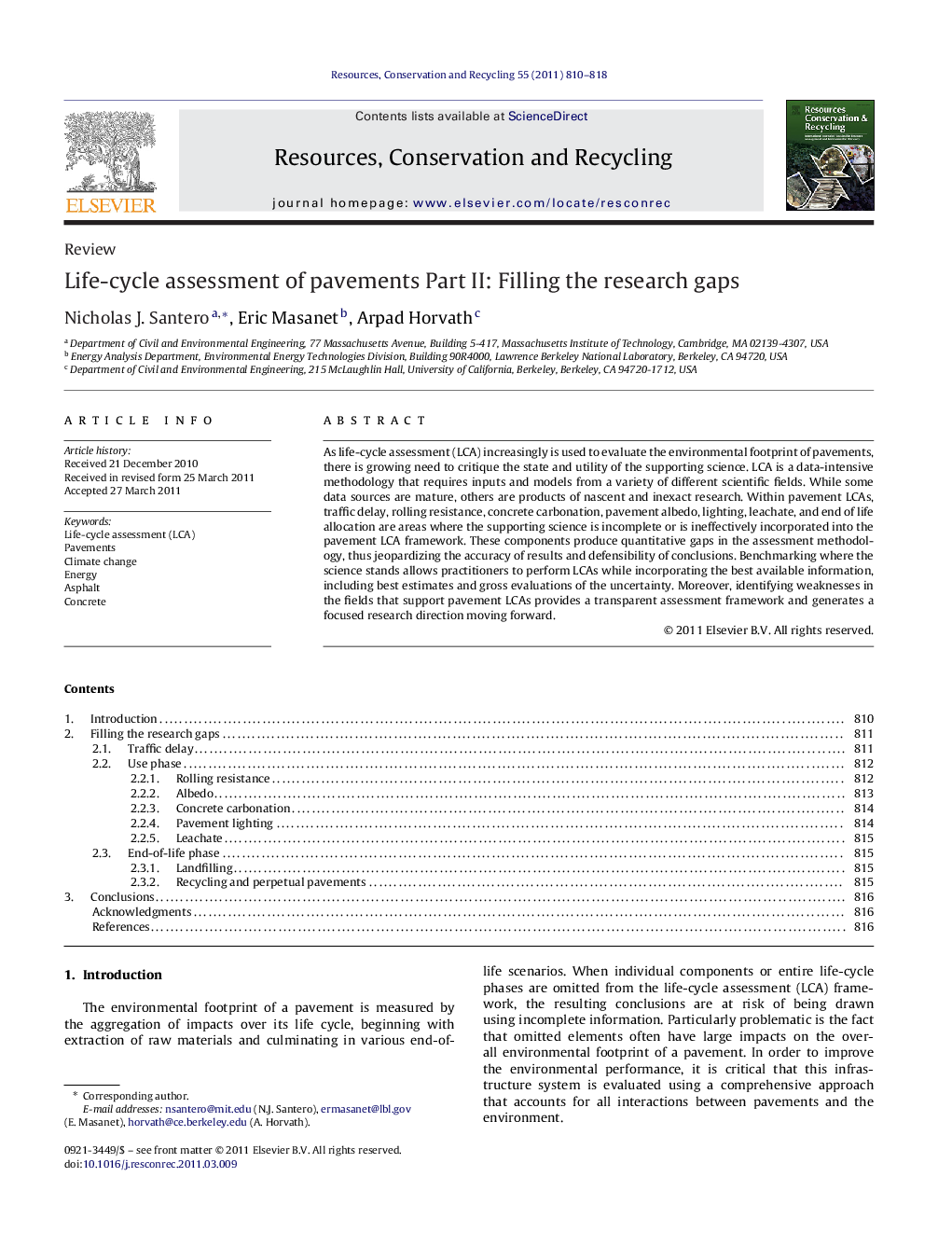| Article ID | Journal | Published Year | Pages | File Type |
|---|---|---|---|---|
| 1063579 | Resources, Conservation and Recycling | 2011 | 9 Pages |
As life-cycle assessment (LCA) increasingly is used to evaluate the environmental footprint of pavements, there is growing need to critique the state and utility of the supporting science. LCA is a data-intensive methodology that requires inputs and models from a variety of different scientific fields. While some data sources are mature, others are products of nascent and inexact research. Within pavement LCAs, traffic delay, rolling resistance, concrete carbonation, pavement albedo, lighting, leachate, and end of life allocation are areas where the supporting science is incomplete or is ineffectively incorporated into the pavement LCA framework. These components produce quantitative gaps in the assessment methodology, thus jeopardizing the accuracy of results and defensibility of conclusions. Benchmarking where the science stands allows practitioners to perform LCAs while incorporating the best available information, including best estimates and gross evaluations of the uncertainty. Moreover, identifying weaknesses in the fields that support pavement LCAs provides a transparent assessment framework and generates a focused research direction moving forward.
